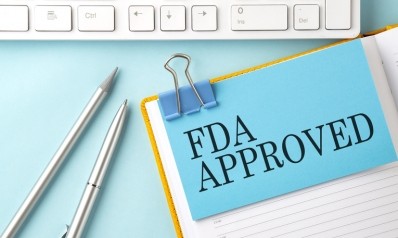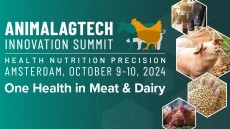FDA and AAFCO to dissolve partnership on animal food ingredient approvals

A memorandum of understanding (MOU) between the US Food and Drug Administration (FDA) and and Association of American Feed Control Officials (AAFCO) on the ingredient definition process had been in place for 17 years. It was due to expire on October 1 and now won't be renewed.
The purpose of the MOU was to clarify the responsibilities of both organizations during the feed ingredient definition request process and to provide mechanisms for resolving disputes and modifying definitions when required.
According to a statement from the FDA, "the relationship between FDA and AAFCO is not ending, but it will be evolving. FDA will continue to participate in AAFCO committees and meetings and work closely with AAFCO and states to help ensure the safety of the animal food supply. The expiration of the MOU presents an opportunity for FDA to begin a thorough evaluation of its pre-market animal food review programs, in hopes of adapting to better serve public health and the needs of all stakeholders."
Austin Therrell, executive director of AAFCO, said the decision was made by the FDA. He told FeedNavigator that, after October 1, US feed ingredient manufacturers that are interested in gaining approval for a new feed ingredient will no longer be able to submit requests through the AAFCO ingredient definition committee (IDC) process. "Instead, manufacturers will need to utilize the previously established food additive petition process, the GRAS notice program, or FDA’s new interim animal food [process]."
Asked whether AAFCO was expecting this to happen, he remarked: "We have known for some time that the FDA was evaluating its programs and practices to consider what the best steps are for the agency. We have been communicating openly with the agency since early this year, and have known for several months that this was the direction they felt was best as they continue to grow and evolve their programs."
Both organizations are independently developing plans to ensure a seamless transition.
Industry reaction
The American Feed Industry Assocation (AFIA), reacting to the news, expressed disappointment over the two organizations decision to abolish a system that has "worked well for decades."
This relationship, said the trade group, has been vital for building and maintaining confidence across the food chain that US animal food products are safe.
AFIA's CEO, Constance Cullman, said: “AFIA’s members are disheartened that the FDA will end its partnership with AAFCO, which for decades has ensured the regulatory review of animal food products is efficient, predictable and functional. In the US, it takes an average three to five years and $600,000 per ingredient before animal food innovators gain the approvals they need to sell and use their products in diets for domestic livestock and pets.
"Our members are concerned that uncertainty in the regulatory review processes brought about by today’s announcements will only increase those figures, making the US animal ingredient marketplace an unattractive place to do business."
She said the AFIA will continue working with the FDA and AAFCO on next steps to ensure any proposed changes to the current review processes bring about clear requirements for members and some sense that new ingredients will be reviewed in a timely and consistent manner across state and federal jurisdictions.
Background
Since the AFIA began in 1909, states have been developing their own feed laws. AAFCO was formed to harmonize and unify feed legislation and regulations between the states and work with federal officials who regulate feeds shipped in interstate commerce.
In the 1950s, the FDA and AAFCO began working together on reviewing new ingredients, a process which evolved over the years into a formal memorandum of understanding in 2007, when the agencies reiterated their respective roles and responsibilities, removing confusion between state and federal regulations for ingredient innovators. Since then, AAFCO has been responsible for providing one of three regulatory pathways ingredient innovators could pursue, with FDA involvement, on the safety and efficacy review of new ingredients.
The AFIA has previously stated that should one of the three regulatory pathways be stopped, as was the case in 2010 when the two agencies briefly ended the mutual agreement, it puts undue pressure on the other pathways to fill the void.
The feed industry representative body said it plans to work with the FDA and AAFCO to avoid such unintended consequences, as additional costs and time spent caught in the regulatory process disincentivizes animal food ingredient innovators from doing business in the US market.


















